What Note is Eucalyptus Essential Oil
Eucalyptus essential oil has gained popularity for its various benefits and uses. From relieving respiratory issues to aiding in mental clarity, this essential oil has a wide range of applications.
In this article, we will explore what eucalyptus essential oil is, how it is made, the different types available, its benefits, safety precautions, and how it can be used. Whether you are a seasoned essential oil user or new to the world of aromatherapy, this article will provide you with valuable information on eucalyptus essential oil.
Key Takeaways:
What is Eucalyptus Essential Oil?
Eucalyptus Essential Oil is a concentrated liquid containing volatile aroma compounds from the eucalyptus plant. It is widely used in aromatherapy for its refreshing and invigorating scent.
The extraction process of Eucalyptus Essential Oil involves steam distillation of the eucalyptus leaves, resulting in a potent oil with a strong, camphor-like aroma. Originating from Australia, where eucalyptus trees are abundant, this essential oil has been traditionally used for its therapeutic properties. In aromatherapy, Eucalyptus Essential Oil is known for its ability to promote clear breathing, relieve congestion, and provide a sense of relaxation.
How is Eucalyptus Essential Oil Made?
Eucalyptus Essential Oil is typically extracted through a process of steam distillation from the leaves of the eucalyptus tree.
Steam distillation, a widely used method in essential oil production, involves passing steam through the plant material to extract the volatile compounds. In the case of Eucalyptus Essential Oil, this process helps capture the aromatic essence and beneficial properties of the eucalyptus leaves.
Quality control measures are crucial during production to ensure the oil meets industry standards. This includes monitoring temperature, pressure, and timing to optimize the extraction efficiency and maintain the oil’s purity.
The botanical source of the eucalyptus leaves plays a vital role in determining the oil’s fragrance and therapeutic properties. Cultivating eucalyptus trees in ideal conditions with proper care is essential to obtain high-quality essential oil.
What are the Different Types of Eucalyptus Essential Oil?
Eucalyptus Essential Oil comes in various types, each with its unique aroma profile and therapeutic properties.
Eucalyptus Globulus, also known as Blue Gum, is widely recognized for its strong, fresh, and camphoraceous scent, making it a popular choice for aromatherapy to promote a sense of vitality and clear breathing.
Eucalyptus Radiata, or Narrow-Leaved Peppermint, has a softer, sweeter aroma compared to its counterparts, often used for its immune-boosting properties and respiratory support.
Whereas Eucalyptus Citriodora, Lemon Eucalyptus, offers a citrusy and uplifting fragrance, suitable for repelling insects and refreshing the mind.
Eucalyptus Smithii, also called Gully Gum, features a mild, slightly fruity scent ideal for easing congestion and promoting overall well-being.
Eucalyptus Globulus
Eucalyptus Globulus is a widely recognized variety known for its strong woody aroma and aromatic properties, making it a popular choice in perfumery and spa products.
Botanically, Eucalyptus Globulus is characterized by its tall, evergreen nature with elongated leaves that emit a fresh, minty scent when crushed. The essential oil extracted from this species is prized for its camphoraceous undertones, which blend well with citrus and herbal notes. In perfumery, it is often used as a top or middle note to add a refreshing and invigorating touch to fragrances. The antiseptic and decongestant properties of Eucalyptus Globulus make it a popular ingredient in spa products such as bath oils, shower gels, and massage oils.
Eucalyptus Radiata
Eucalyptus Radiata is known for its camphoraceous aroma profile, often used as a middle note in blends by herbalists and in candle making.
Its distinct camphor notes make it a popular choice for promoting feelings of clear breathing and overall respiratory health. In traditional herbalism, Eucalyptus Radiata is valued for its expectorant properties and ability to ease congestion. Herbalists often incorporate it into ointments, chest rubs, and steam inhalations to support the respiratory system.
Eucalyptus Citriodora
Eucalyptus Citriodora stands out for its citrusy top notes, commonly utilized in perfumery to add a refreshing and uplifting aroma to fragrances.
The distinct citrus characteristics of Eucalyptus Citriodora impart a zesty and invigorating essence to any scent composition. Its top note classification positions it as an immediate burst of freshness that captures attention and sets the tone for the entire olfactory experience. Perfumers often blend this essential oil with other citrus top notes like lemon or bergamot to enhance its uplifting qualities and create vibrant, energetic fragrances.
Eucalyptus Smithii
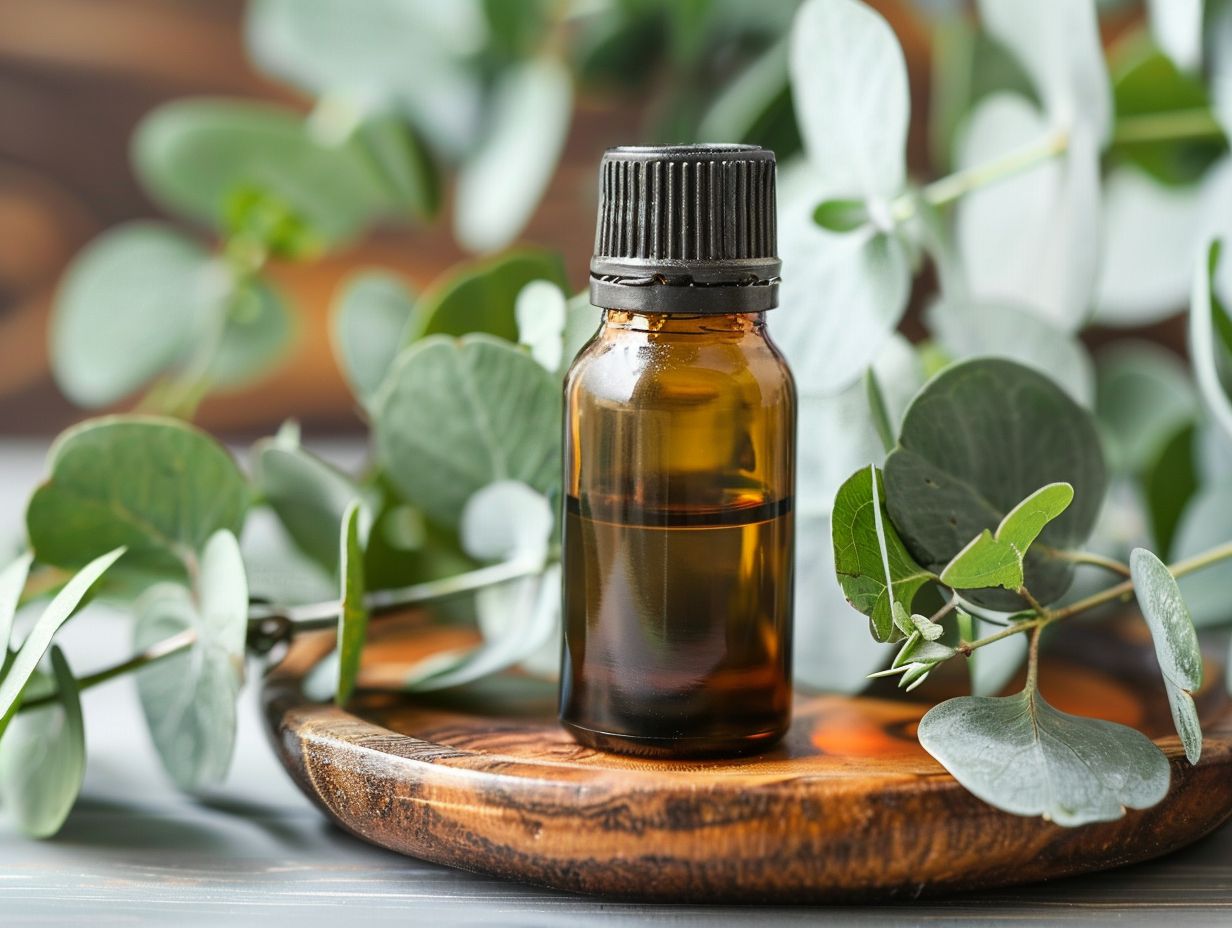
This particular variety of eucalyptus is prized for its subtly sweet and floral aroma, distinguishing it from other more commonly used eucalyptus oils. Its delicate scent pairs effortlessly with various essential oils, enhancing and balancing the overall fragrance profile. Eucalyptus Smithii harmonizes especially well with citrus oils like lemon and bergamot, adding a refreshing and uplifting quality to the blend.
When incorporated into perfumes, this eucalyptus oil lends a unique depth and complexity, creating scents that are both invigorating and soothing. Its versatility extends to aromatherapy where it is used to promote respiratory health, alleviate congestion, and provide mental clarity.
What are the Benefits of Eucalyptus Essential Oil?
Eucalyptus Essential Oil offers a wide range of benefits, from relieving respiratory issues to aiding in mental clarity and focus.
Known for its refreshing and invigorating scent, this essential oil is also highly valued for its antimicrobial properties, making it a popular choice for supporting immune health.
Plus its physical benefits, Eucalyptus Essential Oil is often used in aromatherapy to promote relaxation and alleviate stress and tension, acting as a natural mood enhancer.
With its versatile nature, this oil can be used topically, diffused, or inhaled to support overall health and well-being.
Relieves Respiratory Issues
Eucalyptus Essential Oil is known for its ability to relieve respiratory issues such as congestion and sinusitis when used in aromatherapy.
This versatile essential oil has powerful decongestant properties that can help clear the airways and promote easier breathing. Its expectorant qualities aid in loosening phlegm, making it easier for individuals experiencing respiratory discomfort to expel mucus. Plus its respiratory benefits, Eucalyptus Essential Oil also possesses antibacterial and anti-inflammatory properties, which can further support the immune system in combatting infections and reducing inflammation in the respiratory tract.
Soothes Muscle and Joint Pain
Eucalyptus Essential Oil can help soothe muscle and joint pain when applied topically, providing relief and a sense of relaxation.
Its analgesic and anti-inflammatory properties make it a popular choice for managing discomfort caused by physical exertion or conditions like arthritis. When massaged onto the affected area, the oil penetrates deep into the skin, targeting the source of the pain. The cooling sensation it creates can help alleviate swelling and promote better circulation, aiding in the natural healing process.
Plus its pain-relieving benefits, Eucalyptus Essential Oil is known for its refreshing aroma, which can also contribute to reducing stress and tension, further enhancing the overall relaxation experience. Whether used in massage blends, bath oils, or even in diffusers, this versatile oil can play a significant role in promoting well-being and comfort.
Treats Skin Infections and Wounds
Eucalyptus Essential Oil possesses antiseptic properties that make it effective in treating skin infections and wounds, promoting healing and preventing infections.
When applied topically, Eucalyptus Essential Oil creates a protective barrier over the affected area, shielding it from harmful bacteria and germs. Its antimicrobial qualities actively combat the growth of microbes, reducing the risk of further complications. The oil’s soothing properties also help relieve inflammation and discomfort associated with skin irritations. Eucalyptus Essential Oil is known for its refreshing scent, creating a calming effect on the senses while providing therapeutic benefits for the skin. Its astringent nature aids in cleansing and purifying the skin, making it a versatile option for skincare routines.
Aids in Mental Clarity and Focus
Eucalyptus Essential Oil can aid in enhancing mental clarity and focus through its refreshing aroma when used in aromatherapy practices.
Known for its invigorating properties, Eucalyptus Essential Oil is a popular choice to uplift mood and stimulate the mind. By promoting alertness and cognitive function, the scent of Eucalyptus can help with memory retention and mental acuity.
When diffused or applied topically, Eucalyptus Essential Oil can create an energizing environment that supports concentration during work or study sessions. Its ability to clear the mind of distractions and foster a sense of mental clarity makes it a valuable tool for individuals seeking improved focus.
Plus its cognitive benefits, the aroma of Eucalyptus Essential Oil can also provide relief from stress and tension, further enhancing overall mental well-being.
What are the Safety Precautions when Using Eucalyptus Essential Oil?
While Eucalyptus Essential Oil has numerous benefits, it is essential to follow safety precautions to ensure proper usage and avoid adverse effects.
One important safety measure when using Eucalyptus Essential Oil is dilution. Undiluted essential oils can cause skin irritation and other complications. Always mix Eucalyptus Essential Oil with a carrier oil before applying it to the skin.
In terms of inhalation, it is recommended to operate within recommended guidelines. Direct inhalation from the bottle or diffusing in a well-ventilated area for short periods is safer than excessive inhalation which may lead to respiratory problems.
Individuals with respiratory conditions or pregnant women should consult a healthcare professional before using Eucalyptus Essential Oil due to potential risks.
Dilute Before Use
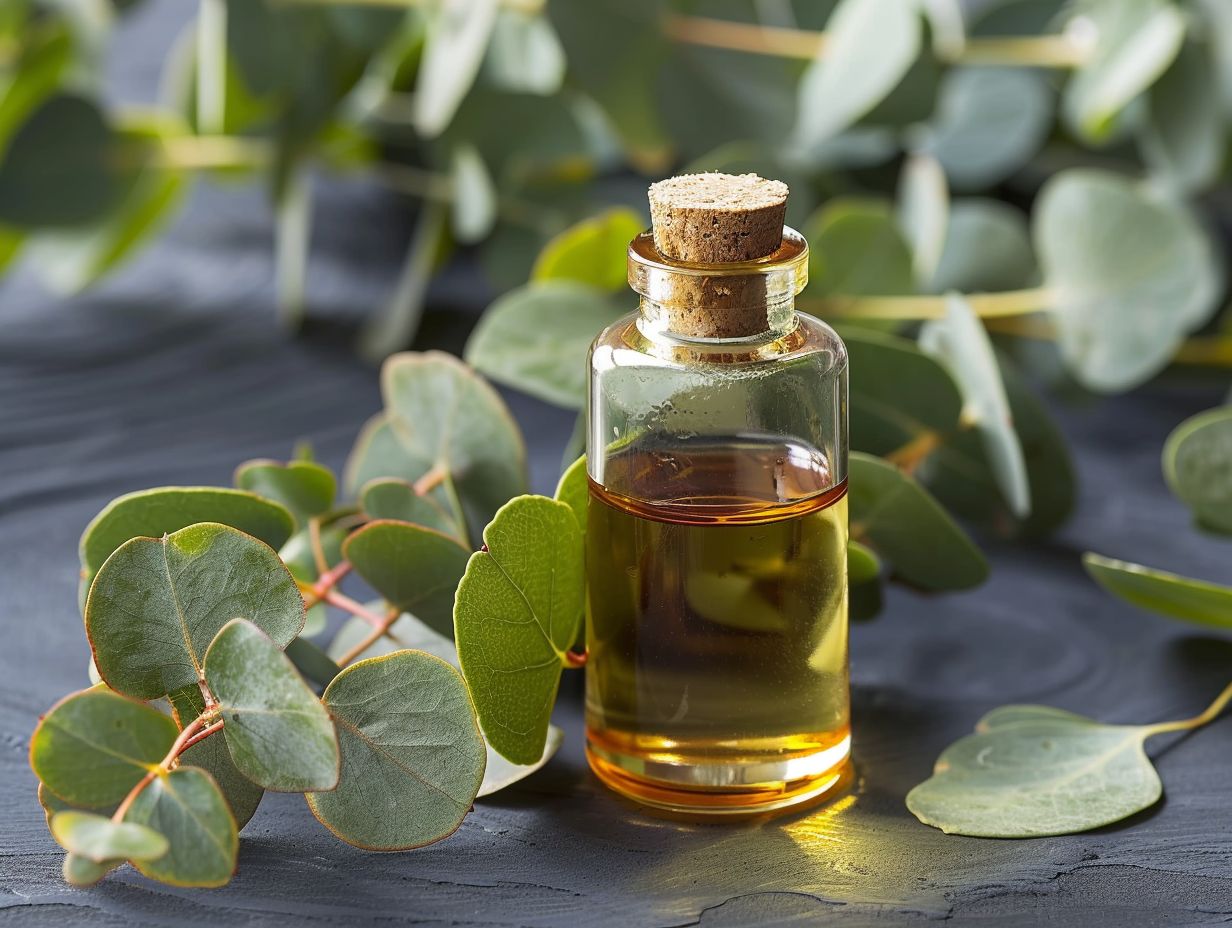
When using Eucalyptus Essential Oil, dilution ratios play a significant role in maintaining its potent properties while minimizing the risk of adverse effects. A standard dilution ratio is typically 2-3% for topical application, which equates to about 12-18 drops of Eucalyptus Essential Oil per ounce of carrier oil.
Given its strong nature, Eucalyptus Essential Oil can cause skin irritation if used undiluted. Individuals with sensitive skin should be especially cautious and may opt for further dilution, adjusting the ratio as needed to prevent any discomfort.
To apply the diluted Eucalyptus Essential Oil safely, consider methods like massage, aromatherapy diffusion, or adding it to skincare products. These approaches can offer the benefits of the oil effectively without compromising skin health.
Do Not Ingest
Under no circumstances should Eucalyptus Essential Oil be ingested, as it can be toxic and lead to severe health complications.
When consumed, Eucalyptus Essential Oil can cause nausea, vomiting, dizziness, and in more severe cases, seizures and even respiratory failure. The toxicity of the oil is mainly due to its high concentration of a compound called cineole, which can be harmful when ingested in significant amounts.
If ingestion occurs, it is crucial to seek immediate medical attention. Do not induce vomiting unless instructed by a healthcare professional, as this could worsen the situation. Instead, contact a poison control center or go to the nearest emergency room for proper evaluation and treatment.
Avoid Use on Children and Pets
It is advised to avoid using Eucalyptus Essential Oil on children and pets due to their heightened sensitivity to certain aromatic compounds.
Children and pets can react differently to essential oils compared to adults. Eucalyptus oil, with its strong aroma, might cause respiratory issues, skin irritation, or even toxicity in smaller beings.
When diffusing essential oils at home, ensure proper ventilation and keep the oil out of reach. For a child-friendly alternative, consider using gentle options like lavender or chamomile.
Pet owners should consult with a veterinarian before using any essential oils around their furry friends, as some oils can be harmful or irritating to animals.
Consult with a Doctor if Pregnant or Breastfeeding
Pregnant or breastfeeding individuals should consult with a healthcare professional before using Eucalyptus Essential Oil to ensure its safety and suitability during these stages.
Eucalyptus Essential Oil is known for its refreshing aroma and potential therapeutic benefits, which include aiding with respiratory issues and promoting relaxation.
During pregnancy or breastfeeding, there are certain risks associated with the use of essential oils that need to be carefully considered.
Expert guidance is crucial in assessing the individual’s health status, possible allergies, and the proper dilution and application methods of the oil.
Consulting a healthcare provider can help tailor the usage of Eucalyptus Essential Oil to meet the specific needs of pregnant or breastfeeding individuals, ensuring a safe and beneficial experience.
How Can Eucalyptus Essential Oil be Used?
Eucalyptus Essential Oil offers versatility in usage, whether through inhalation, topical application, or aromatherapy practices.
When using Eucalyptus Essential Oil for inhalation, a popular method is to add a few drops to a bowl of hot water, creating a steam that can be inhaled for respiratory benefits. Topical application involves diluting the oil with a carrier oil such as coconut or almond oil before applying to the skin. This method is commonly used for muscle relaxation or as a natural insect repellent.
In aromatherapy, Eucalyptus Essential Oil is known for its energizing and refreshing properties. It can be diffused in a room to promote mental clarity and improve concentration, making it a popular choice for home offices or study spaces.
Inhalation
Inhalation of Eucalyptus Essential Oil through a diffuser or steam inhalation can help clear the respiratory system and invigorate the senses.
When Eucalyptus Essential Oil is inhaled, its minty, refreshing scent can provide relief from congestion and promote easier breathing, making it a popular choice during cold and flu seasons.
The antibacterial and antiviral properties of Eucalyptus Oil also contribute to its effectiveness in supporting the respiratory system by helping to fight off infections.
Using a diffuser for inhalation allows the oil to disperse throughout the room, creating a soothing and therapeutic atmosphere, ideal for relaxation and enhancing mental clarity.
Topical Application
Topical application of Eucalyptus Essential Oil on the skin, when properly diluted, can provide relief for muscle aches, promote circulation, and offer a cooling sensation.
When using Eucalyptus Essential Oil for massage, it is essential to mix it with a carrier oil like coconut or almond oil to avoid skin irritation. The oil’s analgesic properties make it effective for soothing sore muscles and joints. Eucalyptus is known for its antibacterial and anti-inflammatory qualities, making it beneficial for promoting healthy skin.
Regular use of Eucalyptus Essential Oil in skincare can help combat acne and reduce inflammation.
Aromatherapy
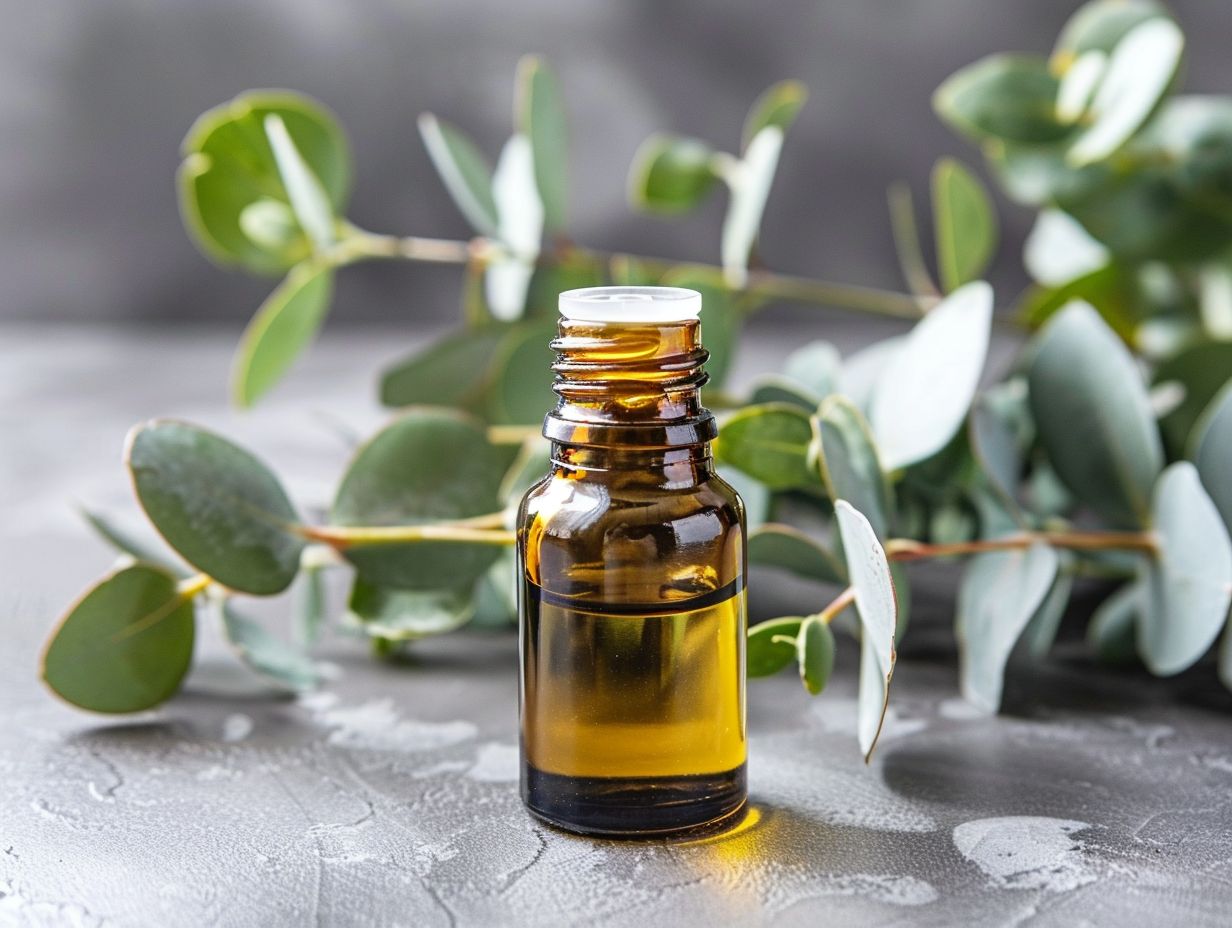
Eucalyptus Essential Oil is well-suited for aromatherapy practices, promoting relaxation, stress relief, and mental well-being through its soothing aroma.
Known for its refreshing and invigorating fragrance, Eucalyptus Essential Oil is a versatile botanical extract derived from the leaves of the eucalyptus tree. When diffused, this essential oil creates a calming ambiance that helps alleviate feelings of tension and anxiety.
Plus its stress-relief properties, this oil is often used to promote clear breathing and support respiratory health, making it a popular choice during cold and flu seasons.
Its antiseptic qualities also make it a common ingredient in natural cleaning products, adding an aromatic freshness to the environment while combating germs and bacteria.
Frequently Asked Questions
What Note is Eucalyptus Essential Oil?
Eucalyptus essential oil is considered a middle note in aromatherapy.
What does it mean for an essential oil to have a ‘note’?
In aromatherapy, an essential oil’s ‘note’ refers to its rate of evaporation and how quickly it dissipates in a blend.
Is the note of an essential oil the same as its scent?
No, the note of an essential oil does not necessarily correspond with its scent. Different essential oils can have similar notes but different smells.
Why is it important to know the note of eucalyptus essential oil?
Knowing the note of an essential oil can help in creating a balanced and harmonious blend, as well as understanding its therapeutic properties and potential interactions with other oils.
Can eucalyptus essential oil be used as a base note in aromatherapy?
Eucalyptus essential oil is not typically used as a base note due to its relatively short lifespan in a blend. However, it can be used as a middle note or added as a top note to enhance a blend.
Are there different types of eucalyptus essential oil with different notes?
Yes, there are several different varieties of eucalyptus essential oil, including Eucalyptus globulus, Eucalyptus radiata, and Eucalyptus citriodora, all of which may have slightly different notes and therapeutic properties.

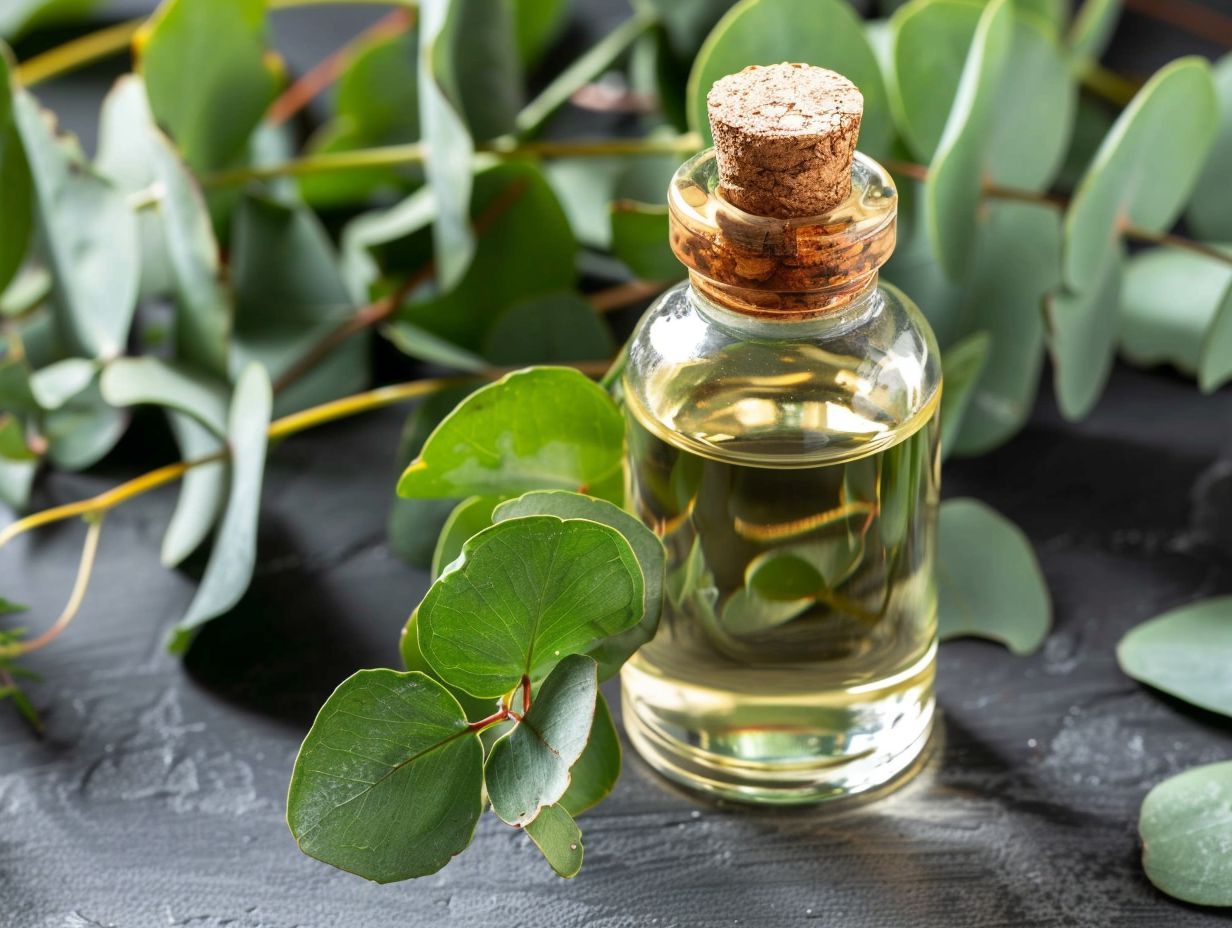


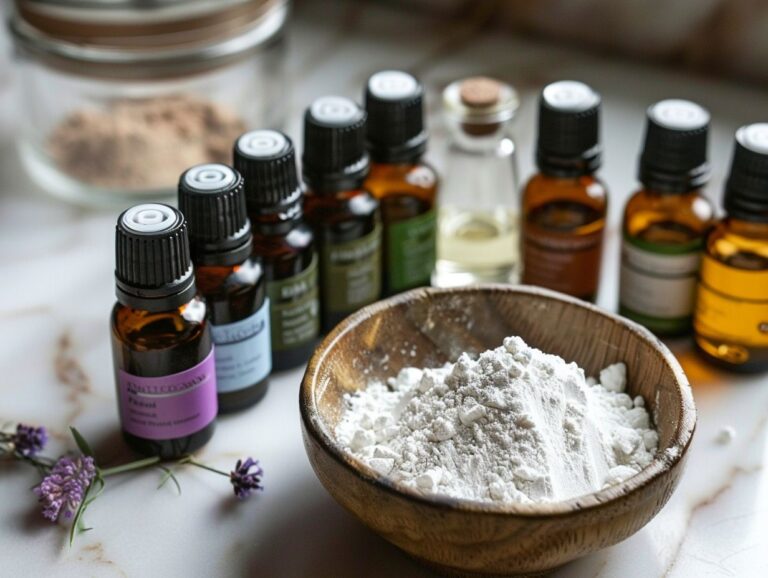
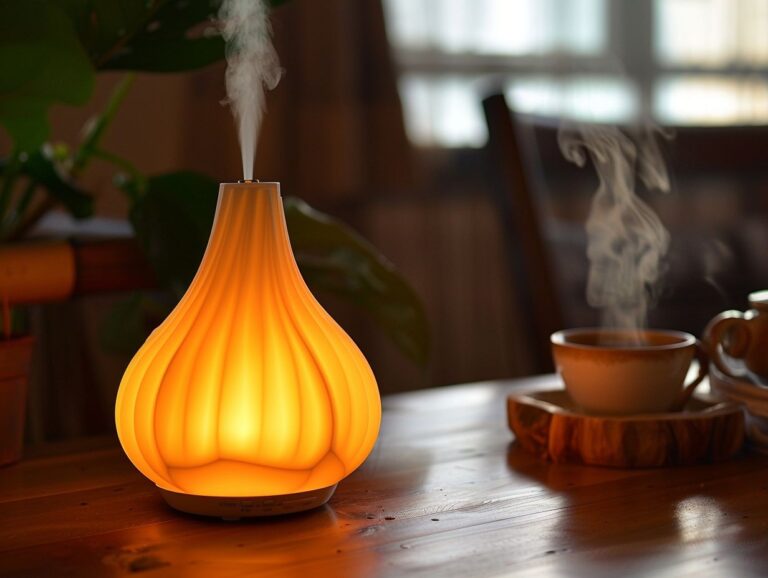

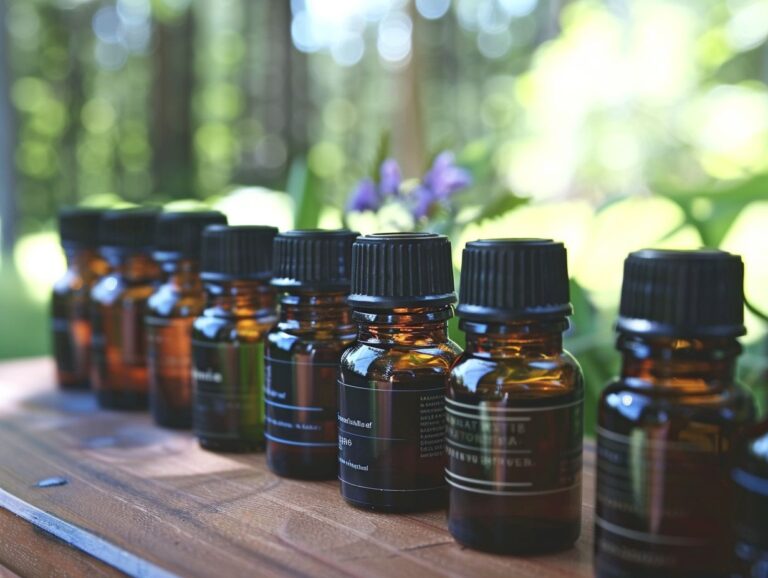
2 Comments